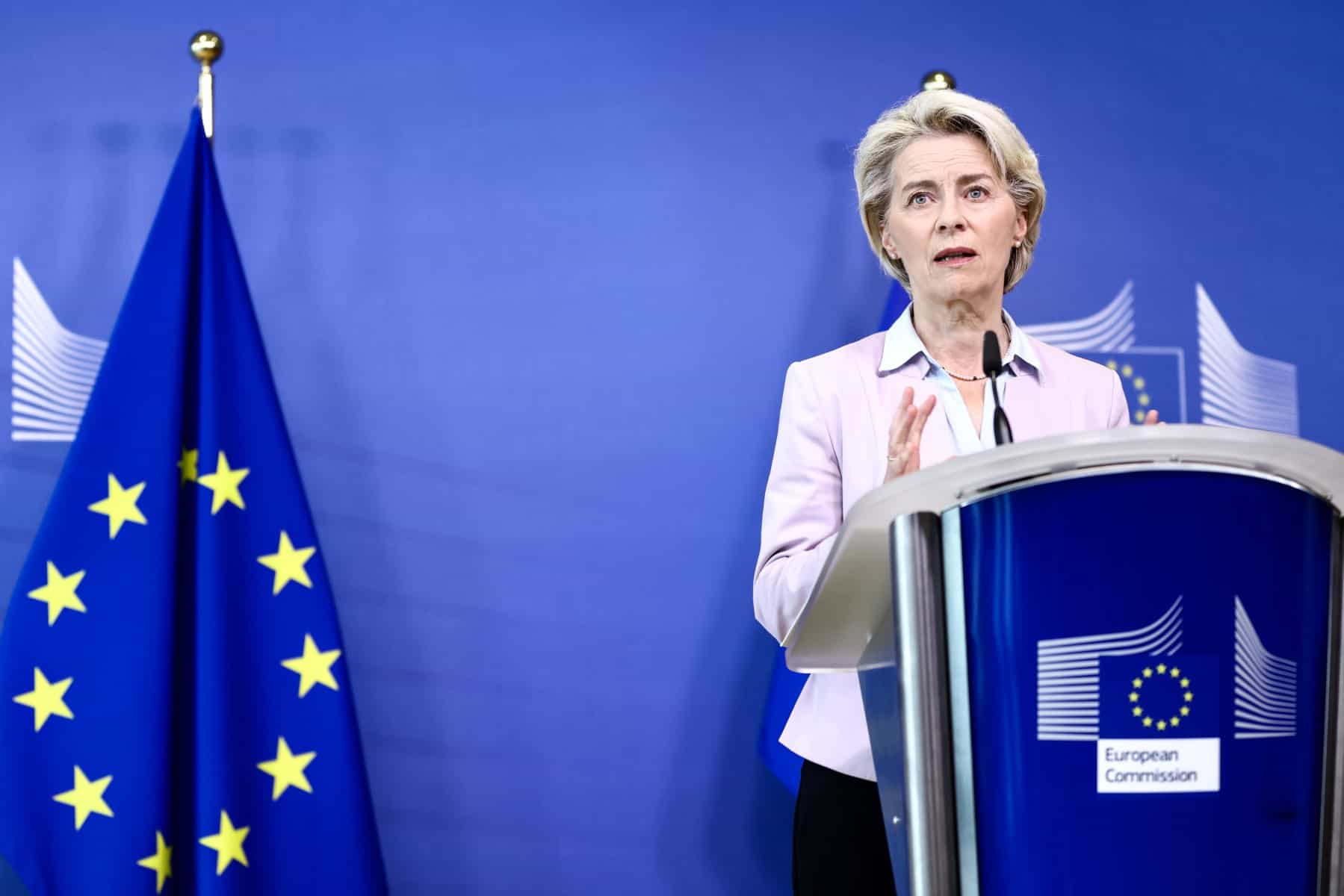Cairo, Egypt — European Commission chief Ursula von der Leyen was in Cairo on Saturday to kick off a two-day investment conference, where deals potentially worth over $42 billion are expected to be signed.
“At this conference, European companies are signing over 20 new deals … which are worth over 40 billion euros,” von der Leyen said at the meeting in the Egyptian capital.
The conference comes after a 7.4 billion-euro ($7.9 billion) EU funding package was signed in March to support the indebted North African country.
The strategic partnership deal provides the financial support in exchange for boosting energy sales to Europe and stemming migration.
“Today, we sign the first one billion euros in macrofinancial assistance,” the EU chief said, referring to the initial tranche of the funding package.
Macrofinancial aid, a series of medium- and long-term loans, “constitutes the large majority of the 7.4 billion euros in EU financial support under the partnership,” von der Leyen said.
Another 1.8 billion euros in European investments are hoped for as part of the deal, she added.
Egypt, the Arab world’s most populous nation, is in dire need of financial help as it weathers a severe economic crisis marked by rapid inflation.
In his opening remarks, Egyptian President Abdel Fattah El-Sisi said the conference aimed to “enable European companies to benefit from investment opportunities in Egypt”.
The event’s agenda would focus on “employment, economic growth, green and renewable energies”, he said.
Through March’s aid deal, Egypt is betting on its natural gas reserves to gain access to foreign currency, while the EU has sought alternatives to Russian gas since the war in Ukraine.
The EU chief said “Egypt has the ambitious goal of becoming a clean energy hub and this is in Europe’s interest too”.
Human rights groups have criticized the migration conditions of the EU-Egypt partnership, which follows several controversial deals with Libya, Tunisia and Mauritania to stem the flow of irregular migrants across the Mediterranean Sea.
US-based Human Rights Watch labelled the agreement part of “the EU’s cash-for-migration-control approach”, saying it “strengthens authoritarian rulers while betraying human rights defenders, journalists, lawyers and activists whose work involves great personal risk”.
Amnesty International on Wednesday said the EU deal “must depend on human rights reforms”.
Egypt’s stability and prosperity are “essential for an entire region”, added von der Leyen, as war embroils neighboring Gaza and Sudan.








